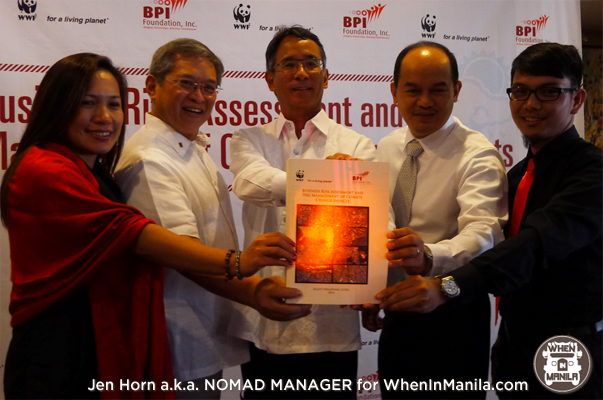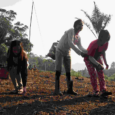When in Manila, ever since catastrophic Ondoy in 2009, both visiting tourists and previously traumatized locals get nervous when there is a constant downpour for days. Given the onslaught of freak floods and other natural disasters happening in the country, people from the government, business and private sectors are finally paying more attention to the urgent climate change issues at hand.
To help address this, the World Wildlife Fund for Nature (WWF-Philippines) and the Bank of the Philippine Islands (BPI) Foundation, Inc. released a second installment of Business Risk Assessment and the Management of Climate Impacts, their study on climate adaptation for the Philippine cities of Cagayan de Oro, Dagupan, Laoag, and Zamboanga.
The study aims to help decision-making bodies assess the impacts of climate change and identify opportunities and sustainability strategies to retain economic viability. The study aids in this by providing data on the analysis of current economic and climate trends and as well as by forecasting of the effects of climate change on the aforementioned cities over the next few decades.
[L-R] Atty. Gia Ibay (WWF-Philippines Climate Change & Energy Program Head), Mr. Jose Ma. Lorenzo Tan (WWF-Philippines Vice-chair and CEO), Mr. Aurelio Montinola III (BPI President and CEO), Mr. Randy Maranan (BPI Foundation Executive Director) and Mr. Monci Hinay (WWF-Philippines Project Head)
Each city is given a vulnerability score, which gives the government a better idea of which cities are at a higher risk of the negative impact of climate change, and urges city planners and local officials to take immediate action. Scores are derived from a vector analysis of three factors gathered from 20-year data from 1990 to 2010:
1. Climate / Environmental Exposure: Simply put, this is the likely local climate scenario for each city.
2. Socio-Economic Sensitivity: This is determined by the city’s population, agriculture, tourism, new and existing businesses & investment, health and educational enrollment.
3. Adaptive Capacity: This reflects a city’s ability to implement adaptation strategies through variables such as labor / work force, family savings, functional literacy, city revenue / expenditures / reserves, banking data and the city’s scores for LGPMS, Crime Statistics and the Human Development Index.
Given their significant stake and critical contribution to the development of the city’s economy, key business and local government leaders were also asked to participate in a scenario-building exercise to discuss the development drivers for each city.
The findings from the research, and ideas from the scenario-building exercise will be moot if action is not taken towards investment in climate-appropriate technology, skills, infrastructure, and systems that deliver on both current and future needs. Furthermore the good governance, or proper management, and therefore success, of these plans rest not only on the government, but each member of the community, working together and cooperating with efforts to implement recommendations.
BPI President and CEO Mr. Aurelio Montinola III also announced that a third installment of the study will be conducted on four more cities next year. WWF and BPI look for cities that have the required data for the study and cooperation from the city’s key individuals and organizations, that are not currently being studies by other groups to avoid the overlapping of research.
To learn more about this project or to pitch your city for the study, get in touch with WWF-Philippines project manager Moncini Hinay at mhinay@wwf.org.ph.
WWF & BPI’s Climate Change Impacts Study for Philippine Cities





